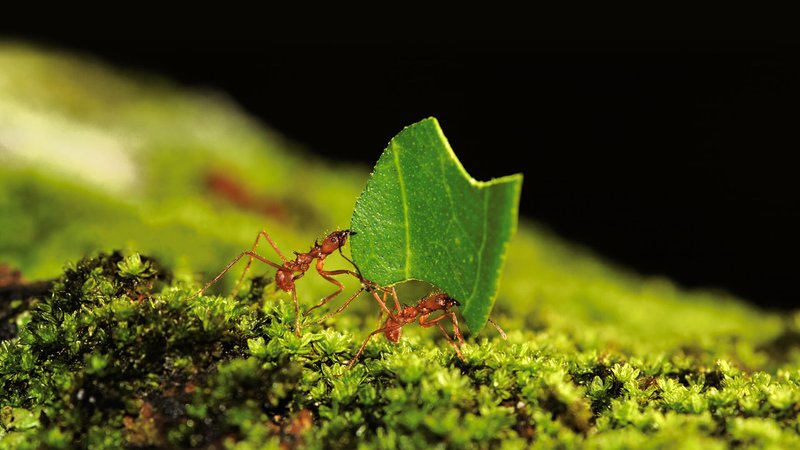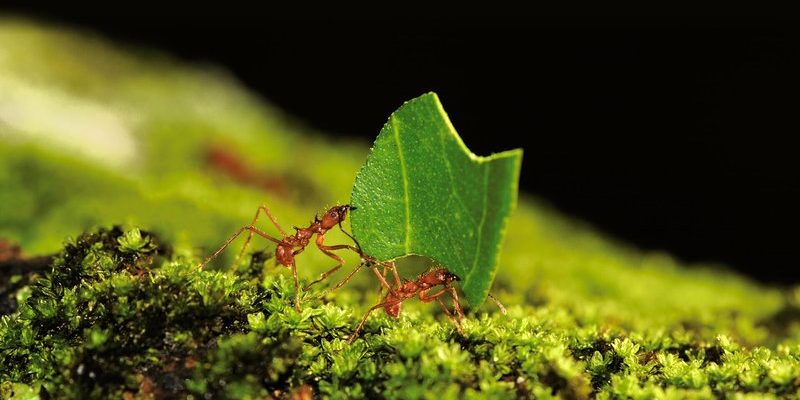
Here’s the thing: Ants might be small, but their impact can be huge. They are found almost everywhere on Earth, except for extreme environments like deep oceans and polar regions. With over 12,000 species identified so far, ants come in all shapes, sizes, and colors. So, let’s dive into the fascinating world of ants and explore how they contribute to ecosystems in ways you might not have considered before.
Ants as Decomposers
Ants are nature’s recyclers. They play a critical role in breaking down dead plants and animals, returning essential nutrients to the soil. When an ant finds dead organic matter, it doesn’t just munch on it. Instead, it can drag pieces back to its colony, where the whole community shares in the feast.
How do ants decompose organic material? They cut, chew, and carry it back to their nest, where fungi often help break it down even further. This process enriches the soil, making it more fertile and effective for plant growth. In a way, you can think of ants like nature’s clean-up crew, ensuring that waste doesn’t accumulate and that vital nutrients aren’t lost.
Plus, as ants dig tunnels through the soil, they aerate it, allowing water and air to reach plant roots more easily. This activity enhances the soil structure and promotes healthy plant growth, creating a more balanced ecosystem. Without ants, we might see an increase in waste and a decrease in soil quality, which could negatively impact all living organisms in that environment.
Seed Dispersal: Nature’s Little Gardeners
You might be surprised to learn that ants can act as excellent gardeners, too! Many plants have seeds with a special coating that attracts ants. When ants find these seeds, they carry them back to their nests, eat the coating, and leave the seed safely underground.
This process is called myrmecochory (try saying that five times fast!). By moving these seeds, ants help in the growth of new plants far away from the parent plant. Some plants even rely on ants for their survival, making this relationship a perfect example of teamwork in nature.
Imagine a little ant dragging a seed through the forest. It’s not just on a mission to snack; it’s also ensuring that the next generation of plants will thrive, providing food and shelter for other animals. This symbiotic relationship shows how interconnected life is—plants depend on ants, and in return, ants benefit from a delicious treat.
Ants in Soil Health and Structure
The impact of ants goes deeper—literally! As ants dig their tunnels, they disturb the soil, improving its structure and health. This natural behavior helps in various ways. For one, their tunnels allow water to penetrate the soil more easily, which is essential for maintaining moisture levels during dry spells.
Why does soil health matter? Healthy soil supports a diverse range of plants and organisms. When ants improve soil quality, they indirectly support the entire ecosystem. Think of the vibrant plants that draw in butterflies and birds; they all rely on good soil to flourish.
In addition to promoting plant health, ants also influence bacterial and fungal communities in the soil. The tunnels they create give these microorganisms a chance to thrive, contributing to a balanced and thriving ecosystem. It’s like ants are nature’s architects, shaping the environment to foster life in all forms.
Ants and Their Role in Pest Control
You might be wondering if ants help keep pesky bugs at bay. The answer is yes! Ants are natural pest controllers. Many ant species feed on insects that can damage plants, like aphids and caterpillars. By keeping these populations in check, ants can help maintain a healthy ecosystem.
Some ants even farm their own food. For example, leafcutter ants cut leaves and bring them back to their colonies, where they cultivate fungus to eat. In doing so, they can manage their food sources and keep pests under control. It’s a clever balance between being a farmer and a predator!
By dealing with pests, ants help reduce the need for chemical pesticides, which can harm the environment. So the next time you see ants marching around, remember—they’re not just a nuisance; they’re doing their part to protect plants and promote a healthier ecosystem.
Ants and Biodiversity
Ants are more than just small players; they’re essential in supporting biodiversity. Their interactions with plants and other animals create complex food webs that sustain various species. A rich and diverse ecosystem means more stability, resilience against diseases, and better overall health for all living things.
You might not think about it that often, but the presence of different ant species can indicate the health of an ecosystem. A diverse ant population can lead to a greater variety of other species. When ants thrive, they support various life forms, which leads to a balanced environment.
In many ways, ants are like the glue that holds different parts of the ecosystem together. They connect plants to animals and help create habitats that allow other species to flourish. Without ants, we might see a decline in biodiversity, which could lead to fragile ecosystems that struggle to survive.
Ants and Their Impact on Human Activity
Now, let’s touch on how ants affect human life. Farmers and gardeners often recognize the benefits these tiny creatures bring to the table. By improving soil health and controlling pests, ants can enhance crop yields and promote healthy gardens.
However, not all ant interactions are positive. Some species can invade homes or agricultural fields, becoming a nuisance. It’s essential to find a balance, recognizing the importance of ants in nature while managing their presence in human spaces.
You might consider using eco-friendly methods to manage ant populations if they become problematic. Often, simple strategies like keeping food sealed and maintaining cleanliness can help keep them at bay without harming their populations in the wild. After all, as beneficial as they are, we also want to ensure our homes are comfortable.
Ants are remarkable creatures that contribute significantly to the health of our ecosystems. From breaking down organic matter to aiding in pest control and promoting plant growth, their roles are diverse and vital. They might seem small and inconsequential, but they’re like the little stitches holding the tapestry of life together.
So, the next time you see a line of ants marching by, take a moment to appreciate their hard work and recognize the important role they play. By understanding how these tiny insects help shape our environment, we can appreciate their contributions more and perhaps even find ways to coexist harmoniously with them.

